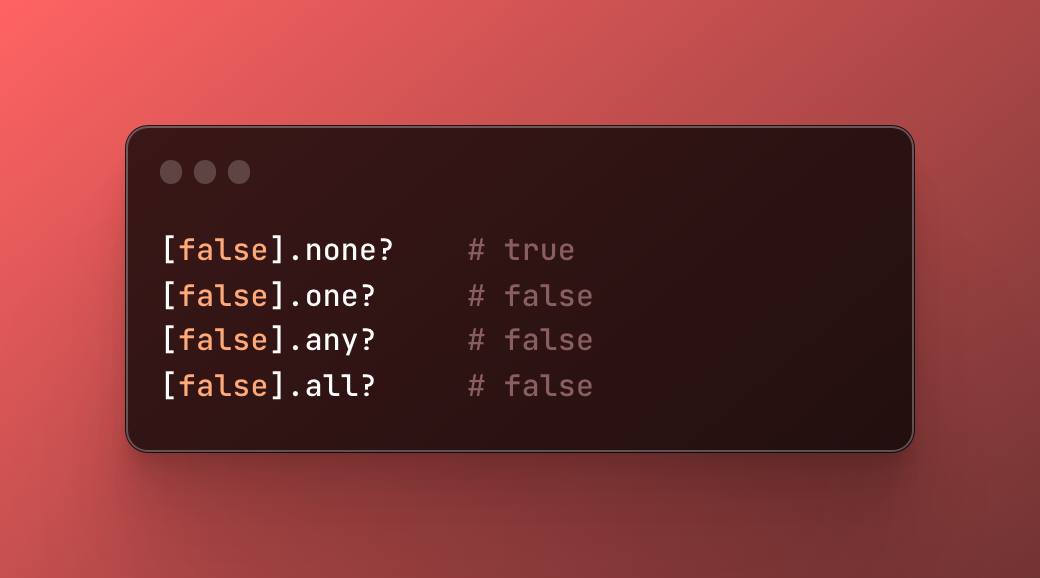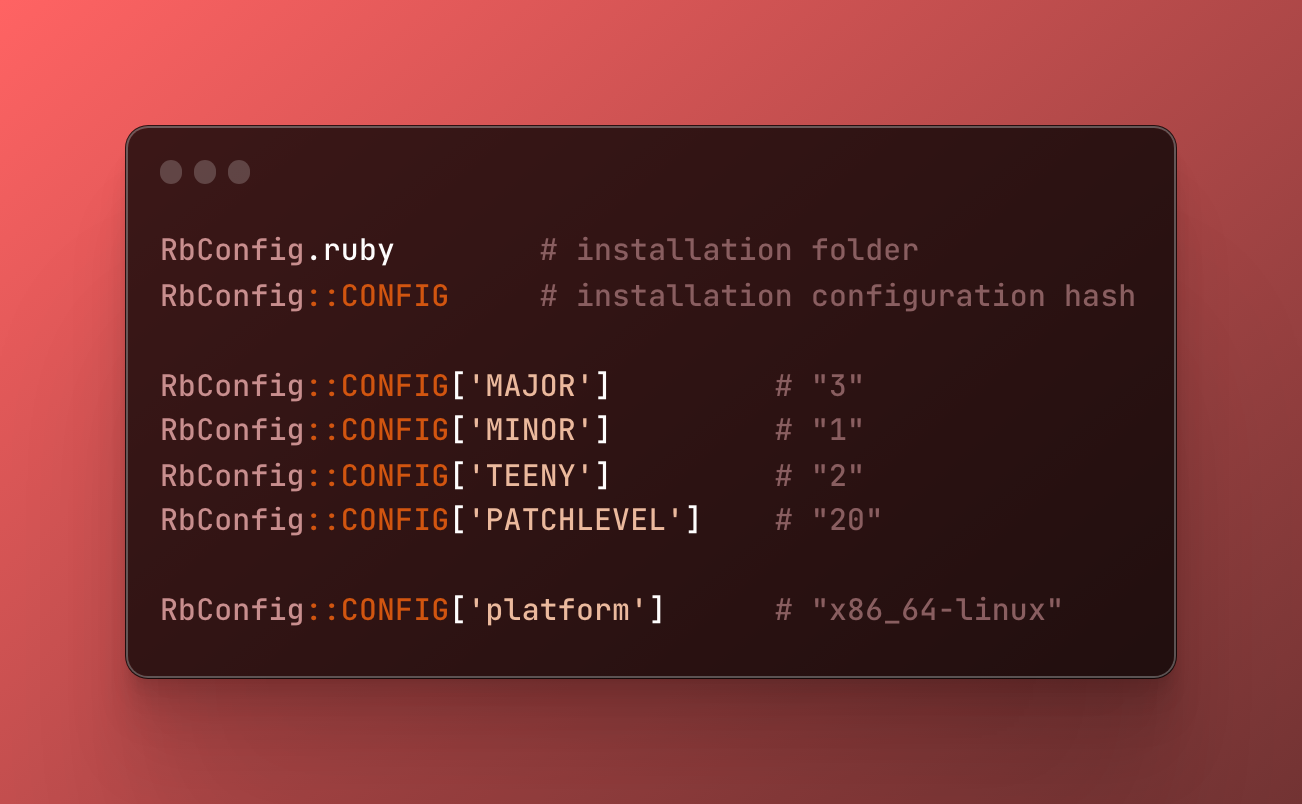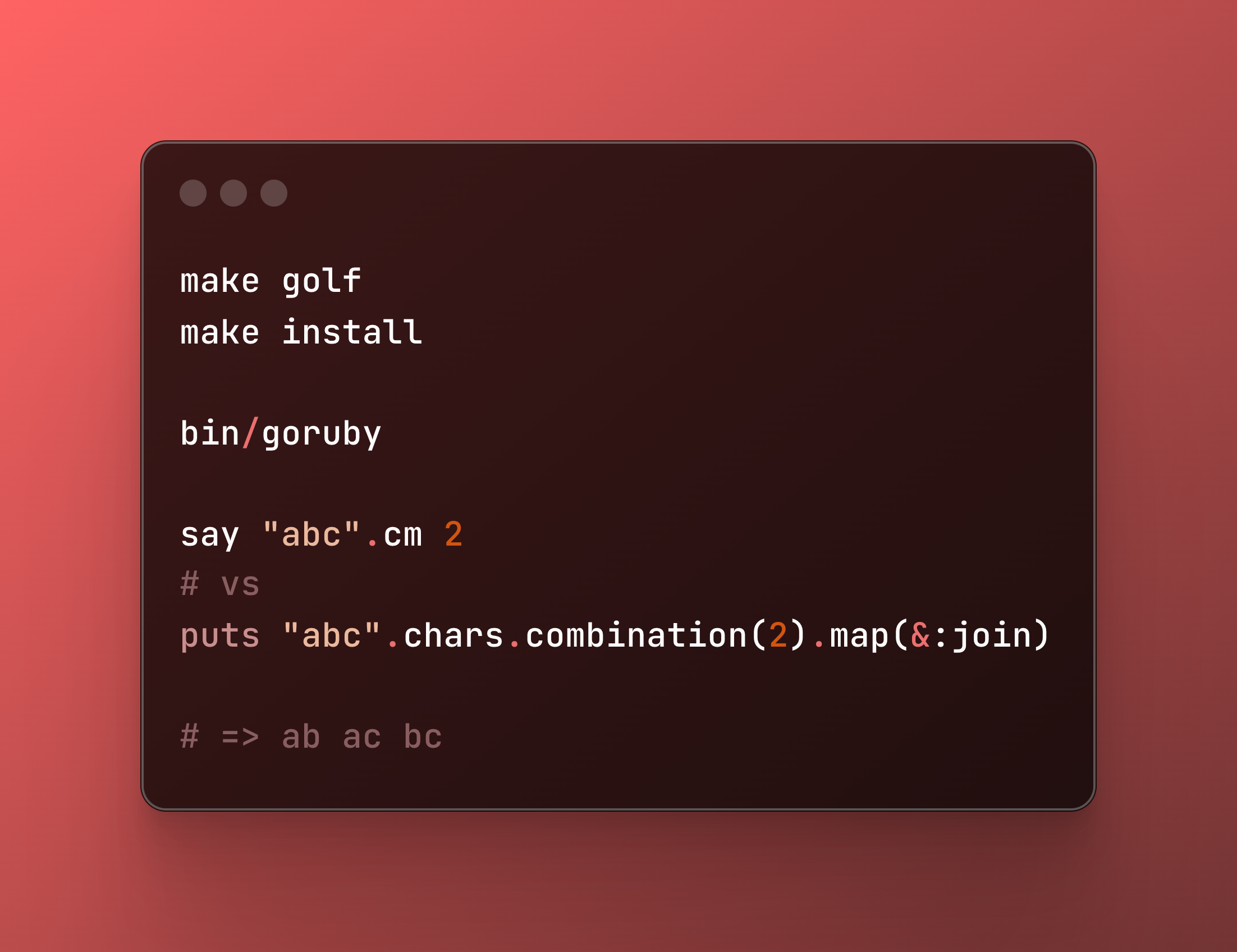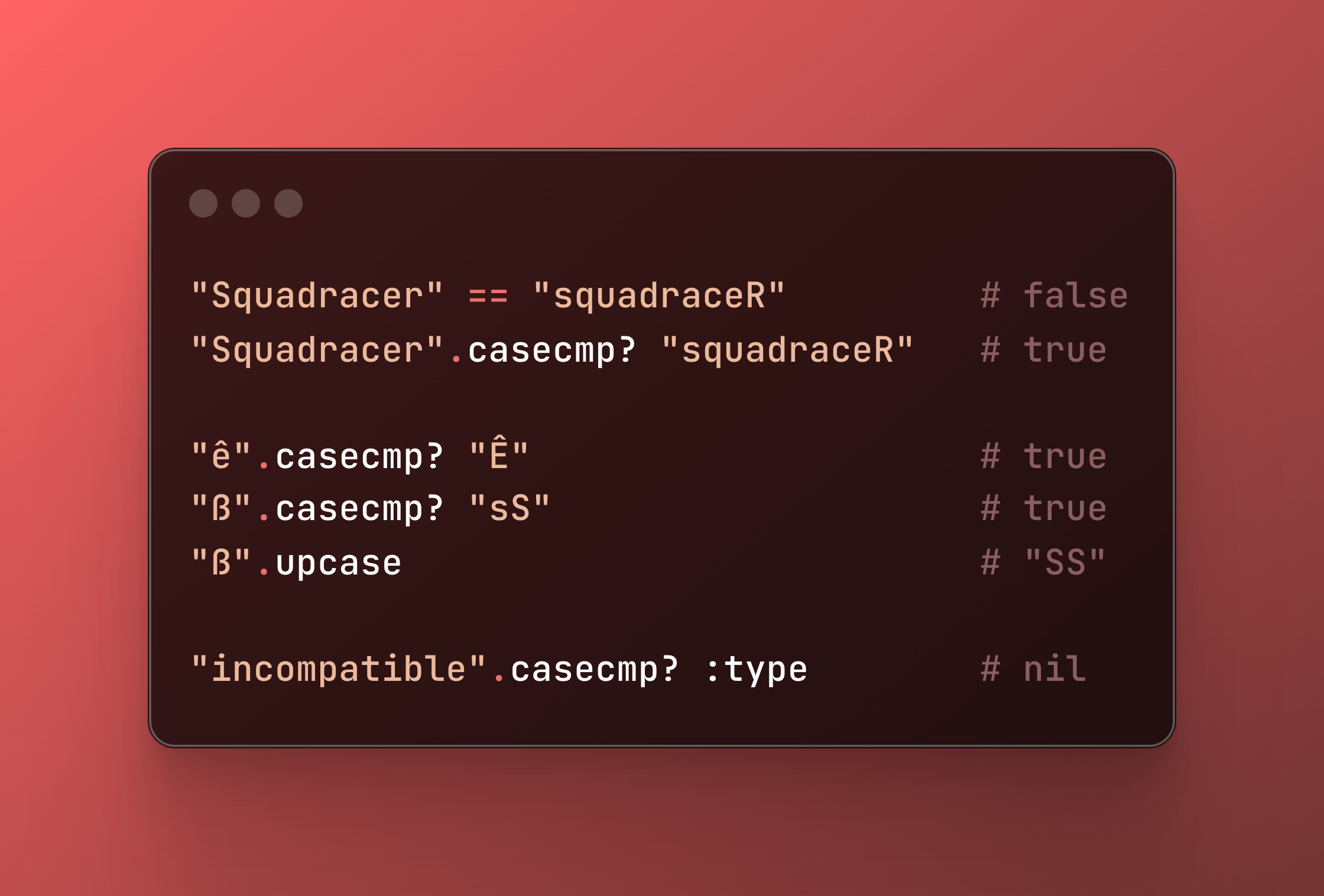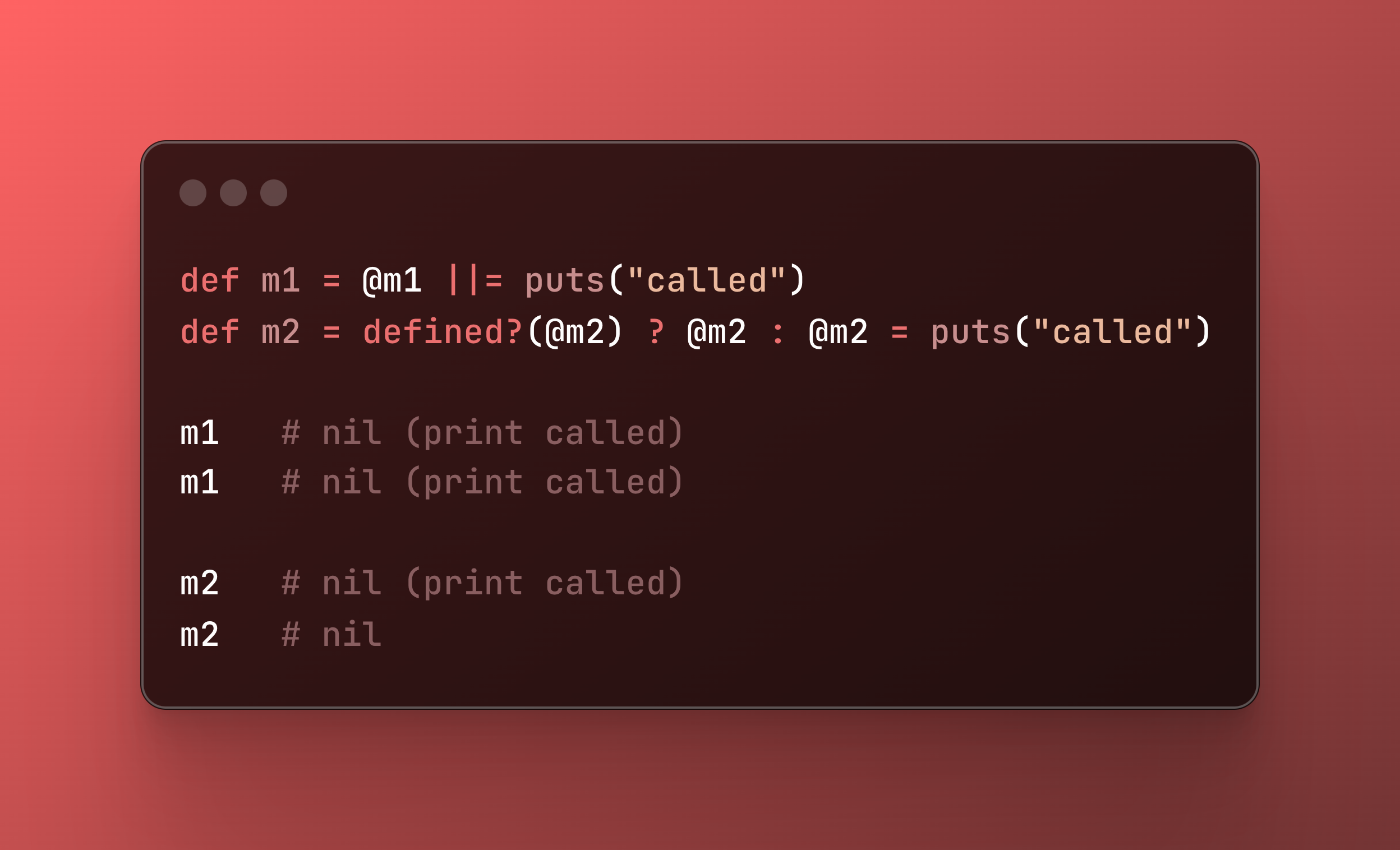Ruby is also very comfortable in scripting mode. It can replace `sed`, `grep`, `awk`, ...
The -e option lets you specify the script directly as an argument.
One of the common features of the various utilities is line-by-line processing. Although it is possible to loop through the code, it is often more convenient to use the -n or -p option, which activates line-by-line processing.
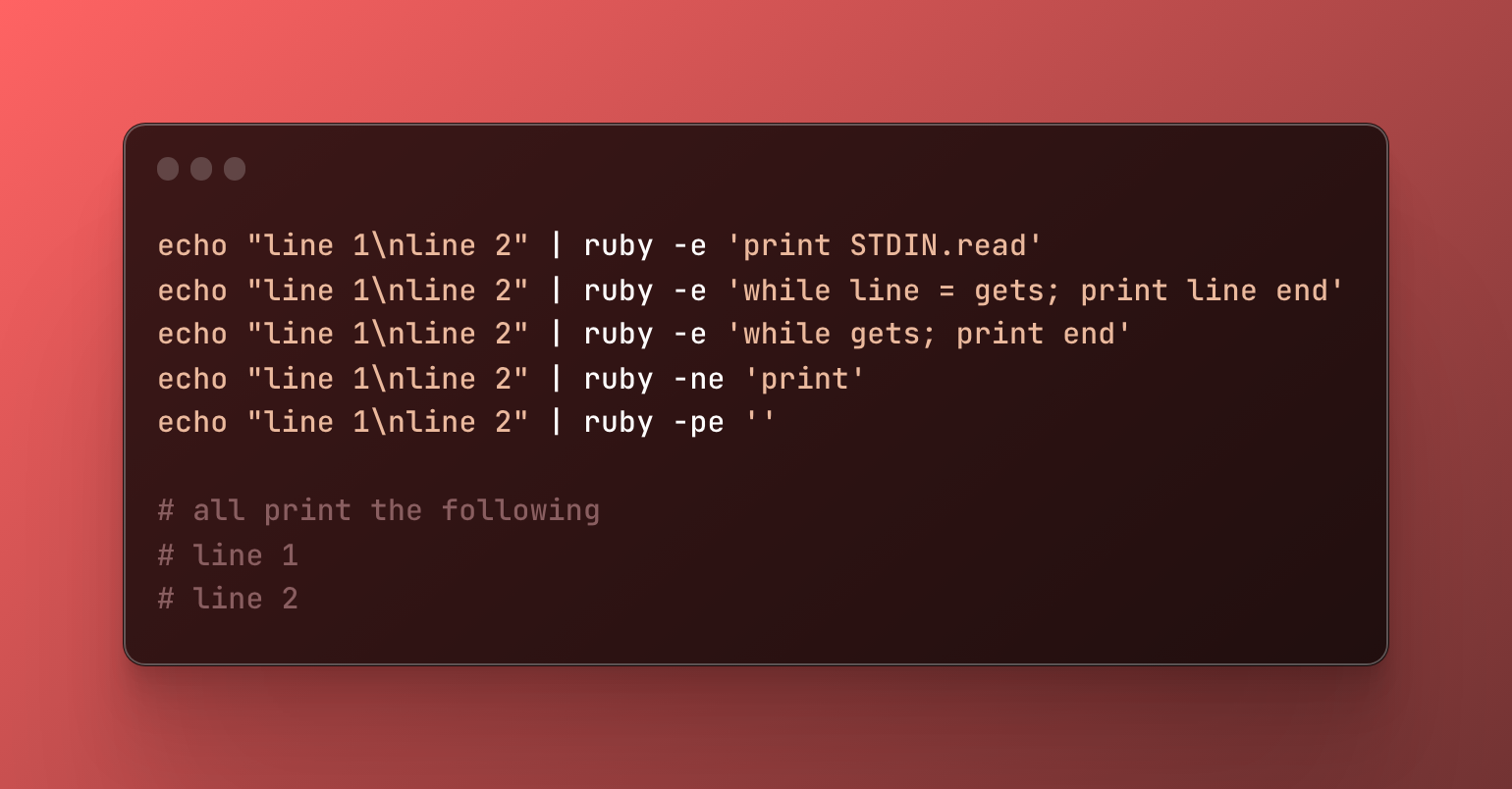
The documentation is very explicit on these 2 options!
-n assume 'while gets(); ... end' loop around your script
-p assume loop like -n but print line also like sed
Line-by-line processing relies on 2 special global variables and the default behavior of print:
$/is the separator used to identify a ‘line’, defaulting to\n.$_contains the last ‘line’ read withgets. ⚠️ The separator is included in$_.printwith no argument displays the contents of the$_variable.
Ex 1: Need to add a prefix to each line?
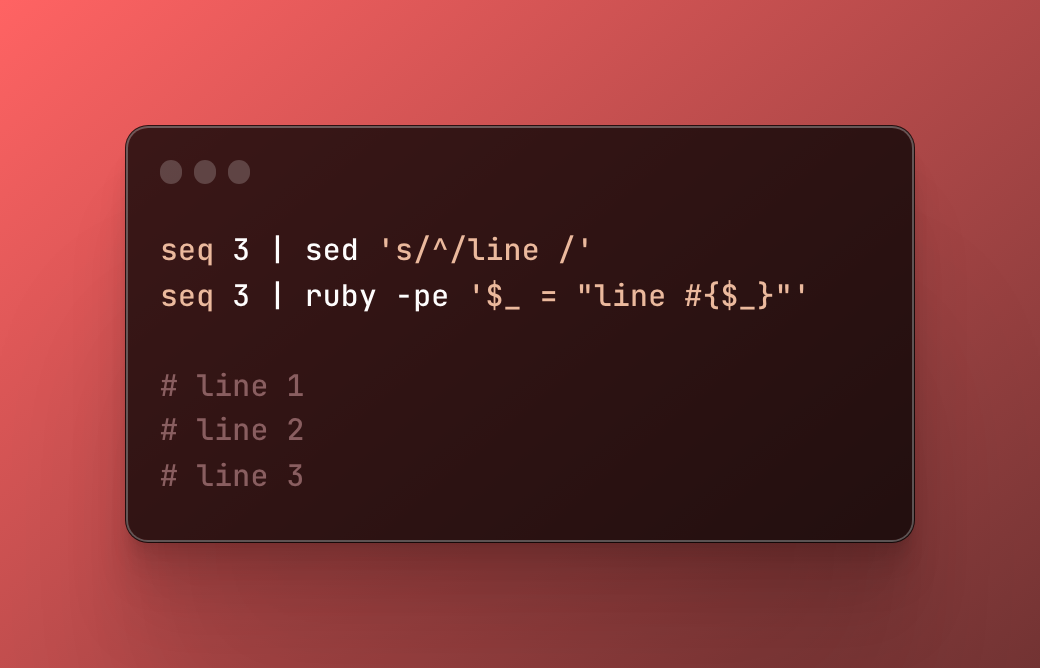
Ex 2: Need to filter lines containing a 2? (Using slice!)
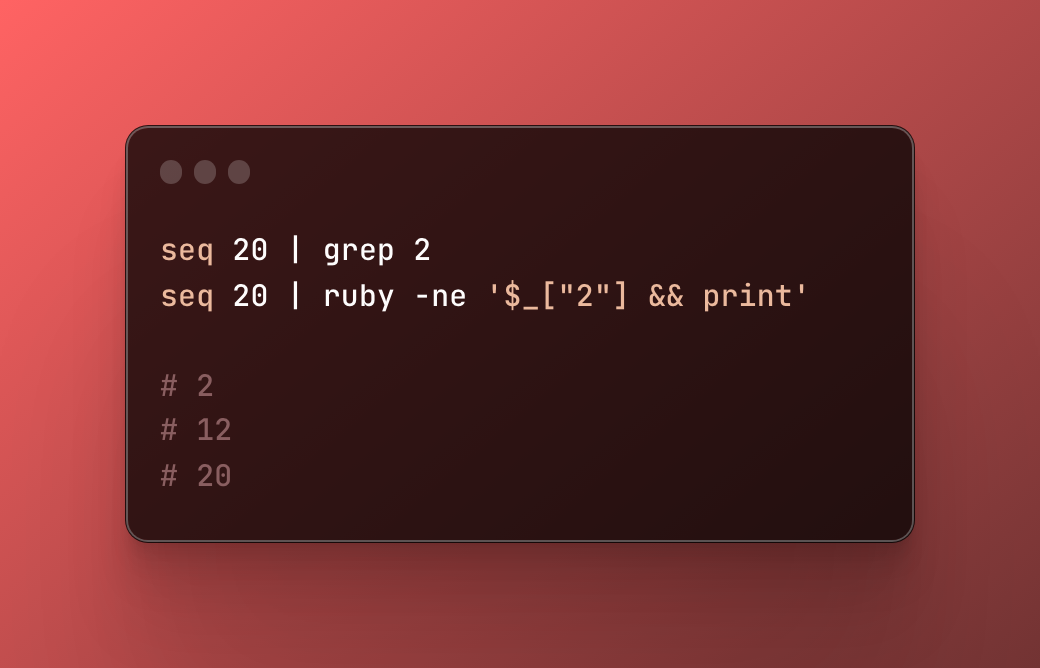
Ex 3: Need to total up? (like awk Ruby has BEGIN and END blocks!)
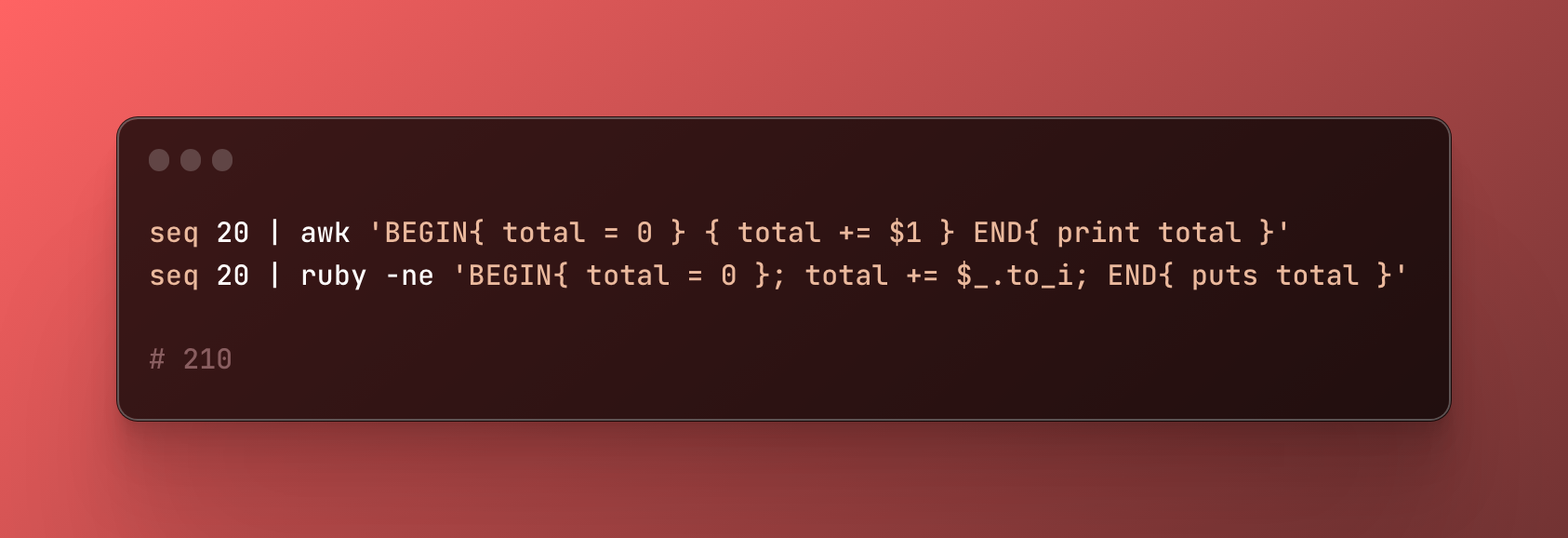
Last example where Ruby will be more enjoyable. Sort the words on each line in alphabetical order. You can even use the -a (autosplit) option to retrieve each column in another special global variable $F, thus acting even more like awk!
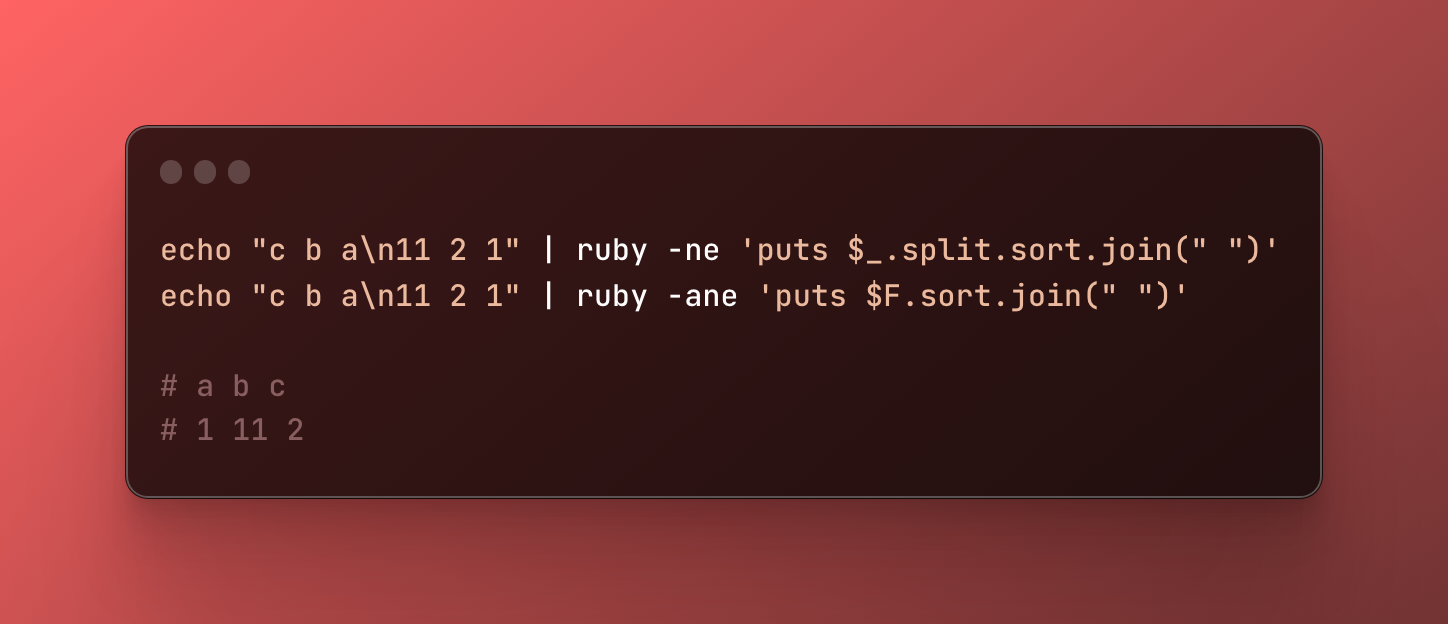
Links to Ruby documentation for command line arguments, man and BEGIN / END (there’s an error in their example, can you see it?).

